|
RadiCoupler Coupling Decoupling Networks (CDN)
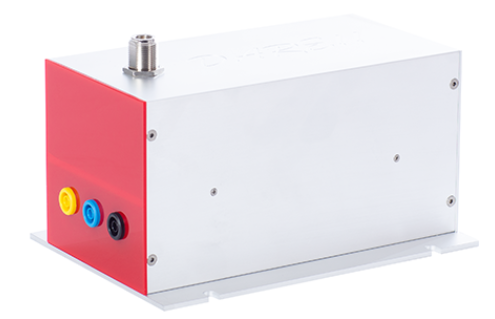 |
The international standard IEC 61000-4-6 relates to conducted immunity requirements, preventing the influence of radio frequency signals to electrical and electronic equipment. To be able to perform conducted immunity testing on an EUT (Equipment Under Test) with several types of connecting cables, different Coupling Decoupling Networks are needed.
DARE!! Instruments introduces a complete range of high quality, full compliant and easy-to-use CDN’s. This enables to perform full compliant and reliable conducted immunity testing on any kind of EUT cable.
Below you will find some advantages of the CDN series of DARE!! Instruments:
One model for all standards
- Full compliant to CISPR16, IEC61000-4-6, EN55015 and EN55035 standards
- Complete range for different EUT cables (AF, M, S and T)
- Each model covering frequency range 100 kHz up to 300 MHz
- Standard robust N-type RF input connection
- Easy Magnetic-Grounding connection (patent pending)
- Delivered including calibration certificate*
- Shorting- and calibration adapters available
|
|
|
BCI CALIBRATION FIXTURES
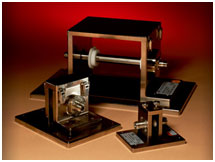 |
Calibration Fixtures from FCC
Calibration fixtures are a part of the test equipment required by most of the Bulk Current Injection Test Procedure Specifications. This test fixture allows the user to quickly and easily calibrate the injection probe prior to performing the compliance testing.
|
|
|
CAPACITIVE NON-CONTACT VOLTAGE PROBE
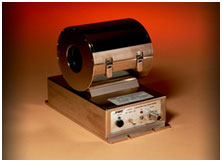 |
The Fischer Custom Communications, Inc. non-contact capacitive voltage probe (F-CVP-1) is used to measure the common mode voltage appearing between a multi-pair balanced cable bundle and the local ground reference for the cable bundle in accordance with CISPR 22 Section C.1.3. The F-CVP-1 makes this voltage measurement without requiring direct contact with the metallic conductors in the cable bundle, or requiring physically breaking the cable bundle to install the F-CVP-1
|
|
|
CISPR 22 ISN
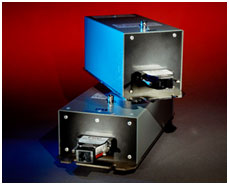 |
CISPR 22 defines ISN’s as specialized coupling decoupling devices used to measure the conducted asymmetric common mode radio interference voltages of an ITE. Fischer Custom Communications, Inc. ISN’s meet the requirements of CISPR 22 and we offer models for measuring conducted emissions on single, two and four balanced pair telecom ITE’s. All meet the requirements for Longitudinal Conversion Loss, common mode impedance, phase, decoupling isolation and voltage division factor.
Model F-071115-1057-1-09 can be used to test single, two, three and four balanced pair ITE’s. The new F-110729-1057-1-09 is for 4 active balanced pairs of CAT 5 and CAT 5e with a POE up to 500 miliampere per wire (1 ampere per pair).
|
|
|
CLIP-ON CURRENT PROBES
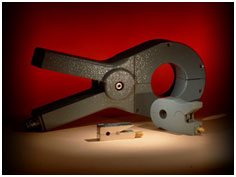 |
F-36 Current Probe Series
The F-36 series probes with their small overall sizes and broad bandwidth sensitivity are ideally suited for making current measurements on cables and circuits inside equipment under test. These probes cover a range of 1kHz to 1000 MHz. The F-36 series spring loaded clip makes for easy attachment to the circuit under test.
|
|
|
COMMON MODE ISN
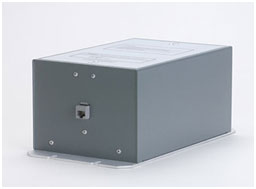 |
The Fischer Custom Communications, Inc. Common Mode Impedance Stabilization Network (F-CMISN-CAT5) is used to provide a common mode impedance in support of conducted emissions testing of Information Technology Equipment (ITE) as per CISPR 22. This passive device provides a true broadband common mode impedance that is well defined with respect to the reference ground plane over the CISPR 22 frequency range of 150 kHz to 30 MHz. When used in conjunction with a FCC F-43 Current Probe and a FCC F-CVP-1 Capacitive Voltage Probe, very accurate common mode current and voltage emission measurements can be made as per CISPR 22 (Annex C.1.3)
|
|
|
COUPLING DECOUPLING NETWORKS
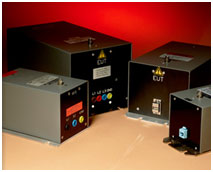 |
The common mode current disturbance signal can be delivered to the EUT using a variety of coupling networks to inject the signal onto the unscreened cables, shielded cables, balanced cables, coaxial cables and power mains. Decoupling networks are used to insure that the disturbance signal does not influence the auxiliary equipment and are placed between the EUT and the auxiliary equipment and are placed between the EUT and the auxiliary equipment
|
|
|
CURRENT PROBES
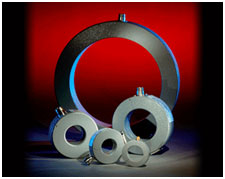 |
The current probe is a special type of RF current transformer used as a RF sensor or monitoring probe. These devices may be used whenever RF current measurements are required. Current measurements are made by placing a current carrying conductor within the “sensing” window of the probe and measuring the probe’s output voltage with an RF detector. Calibration of the probe permits the conversion of the voltages measured to current. Current measurements can be made over the frequency range shown in the transfer impedance curve furnished with each probe. There is virtually no loading of the circuit and the technique permits normal operation of the device under test during measurements.
|
|
|
DCN
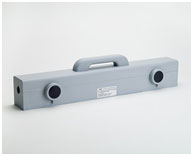 |
F-203I-DCN-23MM
CISPR 22, 1197 Amendment #1 2000-08, radiated emissions testing of information technology equipment, requires that all cables leaving the EUT for connection to auxiliary equipment outside the test site shall be filtered with a ferrite decoupling clamp placed on the cables at the point where the cables exit the test site.
|
|
|
E AND H FIELD SENSORS
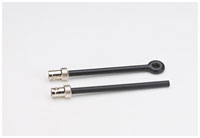 |
Model F-301 Shielded Loop Sensor
This small shielded loop sensor can be used with a spectrum analyzer or receiver to detect emissions over a wide frequency spectrum. The sensor is capable of detecting radiation from currents on surface as well as wires and holes in shields. The loop area is ideal for resolving changes over small distances, making it useful for diagnostic testing of circuitboards, cabling and shielded structures.
|
|
|
EM INJECTION CLAMP
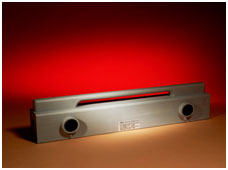 |
Fischer Custom Communications, Inc. offers two EM Injection Clamps, model F-203I-23mm and F-203I-32mm. FCC EM Injection Clamps offer unique benefits compared to conventional EM Injection Clamps.
|
|
|
INJECTION PROBES
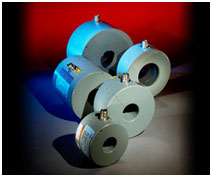 |
Fischer Custom Communications, Inc. develops and manufactures CW injection probes. Over 22 injection probes have been developed to meet specific customer and compliance testing requirements. Fischer Customs Communications, Inc. injection probes are currently being used for compliance testing in accord with Mil-Std-461/462, RTCA/DO-160 Section 20 and 22, Bellcore TR-NWT-001 089, SAE Jl5447, EN 55101-4 and CSEFA-2 Euro-Fighter and other susceptibility specifications.
|
|
|
LISN - CISPR 16
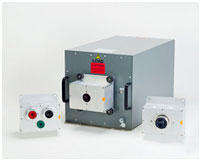 |
Fischer Custom Communications, Inc. designs, develops and manufacturers Line Impedance Stabilization Networks or Artificial Mains Networks covering the frequency range from 1 kHz to 1,000 MHz. Line Impedance Stabilization Networks (LISN) are specialized low pass filter networks used to measure common mode conducted emissions from power lines. Fischer Custom Communications, Inc. has developed over 30 different Line Impedance Stabilization Networks to meet compliance testing requirements and custom requirements. Fischer Custom Communications, Inc. LISN’s are available for pre-compliance and compliance testing in accord with CISPR, VDE, IEC, DO-160 and Mil Std. 461/ 462 Rev C, D and E.
|
|
|
LISN - CISPR 25
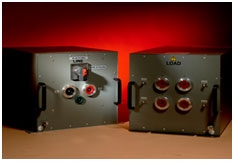 |
Fischer Custom Communications, Inc. manufactures a line impedance stabilization network for use in conducted emissions testing on electronic equipment intended for use in automotive application. The FCC-LISN-5-( )-1-01-CISPR25 has an useable frequency range of 100 kHz -108 MHz and can be used for conducted emissions testing Per SAE J1113 Section 41 and CISPR
|
|
|
LISN - DO-160 REV F
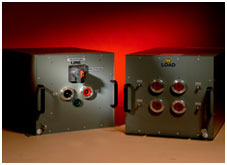 |
The FCC-LISN-5-(xxx)-1-01-DO-160F has been designed for testing electronic equipment in accord with RTCA DO-160 Rev F requirements. DO-160 Rev F has particularly unique voltage requirements related to power circuitry in the next generation of aircraft. Power can range from DC to 800Hz, 230V. The LISN must be rated for this range of voltage vs frequency for avionics electronics to be tested in accod with DO-160 Rev F
|
|
|
LISN - MIL-STD
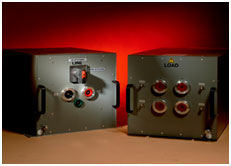 |
Fischer Custom Communications, Inc. designs, develops and manufactures Line Impedance Stabilization Networks or Artificial Mains Networks covering the frequency range from 1 kHz to 1,000 MHz. Line Impedance Stabilization Networks are specialized low pass filter networks used to measure common mode conducted emissions from power lines. We have developed over 50 different models to meet compliance testing requirements and unique customer needs. Fischer Custom Communications, Inc. LISN’s are available for use in testing in accord with CISPR, VDE, FCC, IEC, ISO, SAE, DO-160 Rev D, E, and F, Def-Stan 59-41, and Mil-Std 461 Rev D, E, and F covering a frequency range from 1 kHz – 400 MHz
|
|
|
MONITOR PROBE CALIBRATION FIXTURES
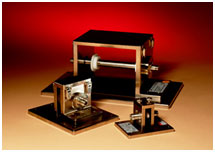 |
Calibration Fixtures from FCC
Calibration fixtures are a part of the test equipment required by most of the Bulk Current Injection Test Procedure Specifications. This test fixture allows the user to quickly and easily calibrate the injection probe prior to performing the compliance testing.
|
|
|
SURFACE PROBES
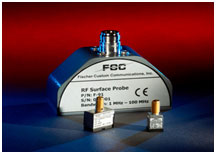 |
The surface probe is a half clamp-on probe with a dielectric cover on the sensing window. The surface probe measures currents on metallic conductors with flat regions such as ground planes, striplines, printed wiring boards, bundles of wire and architectural structures. Surface probes have an insulated base and can be placed in direct contact with conductive surfaces creating minimal disturbance of the current distribution being mapped. The probe’s sensitivity is greatest when the magnetic field is orthogonal to the long axis of the probe.
|
|
|
TELECOM SURGE CDN
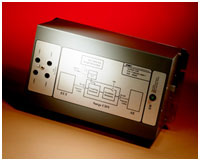 |
The F-060322-1004-2 Surge CDN
The F-060322-1004-2 Surge CDN couples the surge transients specified in EN 61000-4-5 onto high speed digital telecommunications lines of the Equipment Under Test (EUT) and decouples the EUT from the Auxiliary Equipment (AE).
|
|
|
TEM CELLS
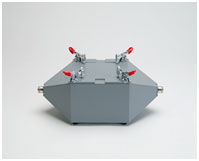 |
FCC Custom Communications, Inc. offers a family of Transverse Electromagnetic (TEM) cells that can be used for both emissions and immunity testing.
|
|

